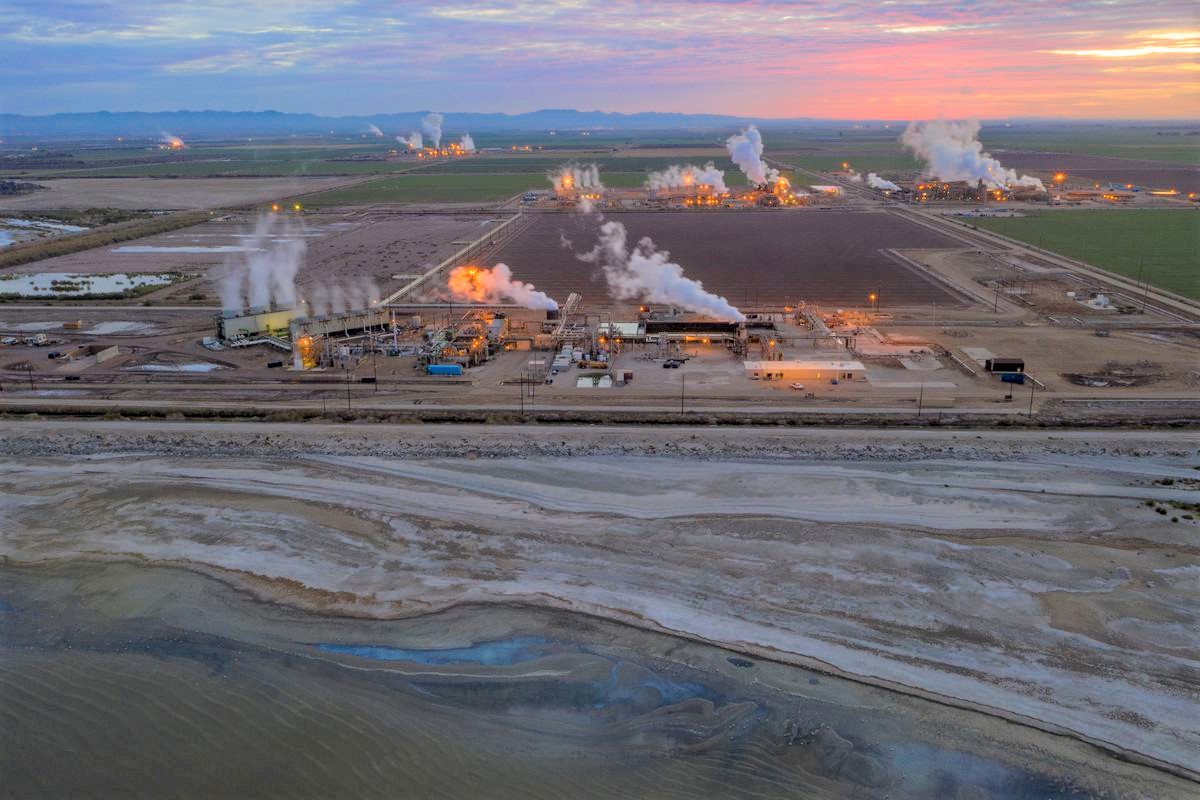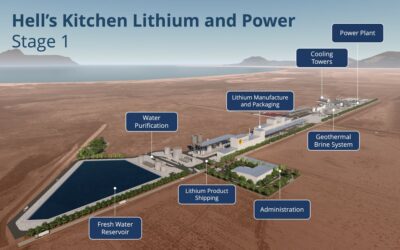General Motors (GM) has agreed to form a strategic investment and commercial collaboration with Controlled Thermal Resources (CTR), based in the city of Imperial, to secure local and low-cost lithium which is crucial to GM’s plans to make more affordable, higher mileage electric vehicles.
CTR’s leadership team has successfully developed and managed world-scale renewable energy projects in the Salton Sea region for over 20 years.
The relationship between GM and CTR is expected to accelerate the adoption of lithium extraction methods that cause less impact to the environment. A significant amount of GM’s future battery-grade lithium hydroxide and carbonate could come from CTR’s Hell’s Kitchen Lithium and Power development in the Salton Sea Geothermal Field, located in Imperial County. With the help of GM’s investment, CTR’s closed-loop, direct extraction process will recover lithium from geothermal brine.
In response to GM’s announcement, Assemblymember Eduardo Garcia (D-Coachella), Chair of the Assembly Select Committee on California’s Lithium Economy, said, “Our efforts to galvanize a thriving, robust lithium economy in our Salton Sea region are becoming a reality more and more each day. With the ability to meet one-third of the global lithium demand, our Imperial County, Salton Sea area, can take center stage in the future of our domestic lithium supply chain. This strategic agreement between Controlled Thermal Resources and General Motors marks the first major investment in actualizing that vision.”
Garcia continued, “After years of laying the groundwork, we are ready to move forward pedal to the metal on our cleaner air, electric vehicle, and climate goals while utilizing these economic development opportunities to bring vital resources, improve public health, and uplift overall circumstances in our region. More than ever, we must continue to elevate our community engagement efforts to ensure local stakeholders and residents are in the driver’s seat as we set this new course. Our work last year (AB 1657, E. Garcia) to establish the Lithium Valley Commission will help ensure that.”
As an anticipated part of its $35 billion global commitment to EVs and autonomous vehicles , GM will be the first company to make a multi-million-dollar investment in CTR’s Hell’s Kitchen project. As the first investor, GM will have first rights on lithium produced by the first stage of the Hell’s Kitchen project, including an option for a multi-year relationship.
“Lithium is critical to battery production today and will only become more important as consumer adoption of EVs increases, and we accelerate towards our all-electric future,” said Doug Parks, GM executive vice president, Global Product Development, Purchasing and Supply Chain. “By securing and localizing the lithium supply chain in the U.S., we’re helping ensure our ability to make powerful, affordable, high mileage EVs while also helping to mitigate environmental impact and bring more low-cost lithium to the market as a whole. GM looks forward to working with CTR, in addition to state and local leaders, in achieving these goals.”
In May, Rod Colwell, Chief Executive Officer of Controlled Thermal Resources, provided key testimony at Assemblymember Garcia’s first California’s Lithium Economy Select Committee hearing. Colwell presented slides with an overview of their local project and lithium recovery technology.
Batteries are and will remain one of the largest cost drivers of EVs. Lithium is a key battery material used in the cathodes and electrolytes of GM EVs like the Chevrolet Bolt EV and Bolt EUV. Lithium will become even more important in battery use as GM explores lithium metal batteries with a protected anode.
Most lithium used in lithium-ion batteries is currently mined and processed outside of the U.S.
The first stage of the Hell’s Kitchen project is expected to begin yielding lithium in 2024, helping GM to meet its aspiration of eliminating tailpipe emissions from light-duty vehicles by 2035.
In 2020, Assemblymember Eduardo Garcia passed AB 1657 creating a Blue Ribbon Commission on Lithium Extraction in California (Lithium Valley Commission) to bring together industry experts and community stakeholders to review, analyze, and report recommendations to advance lithium extraction opportunities. A final report is due to the California State Legislature by October 1, 2022.




